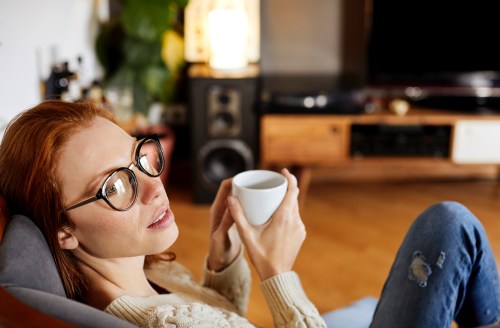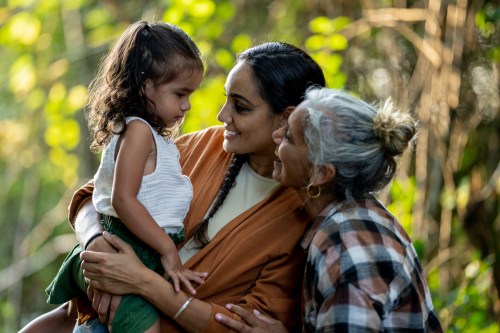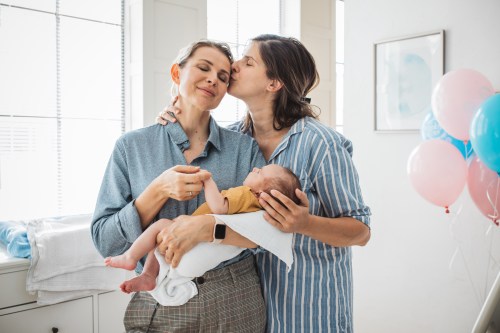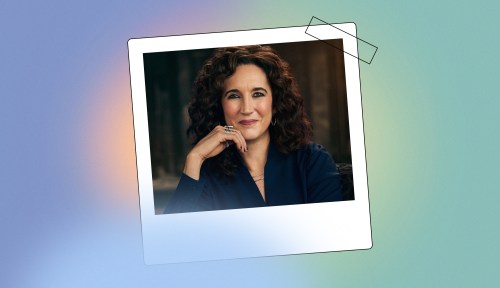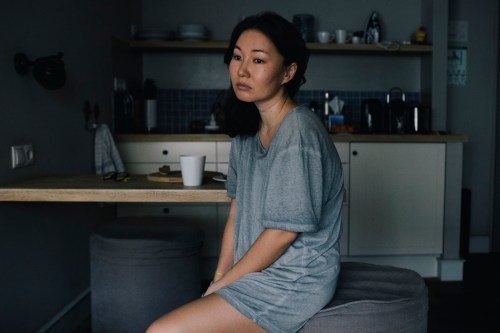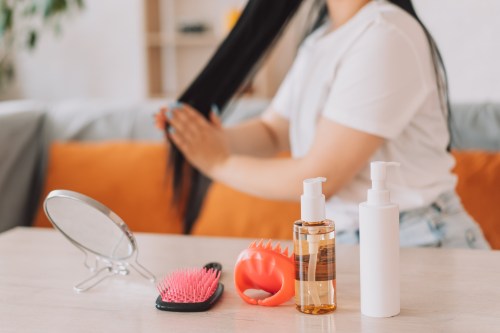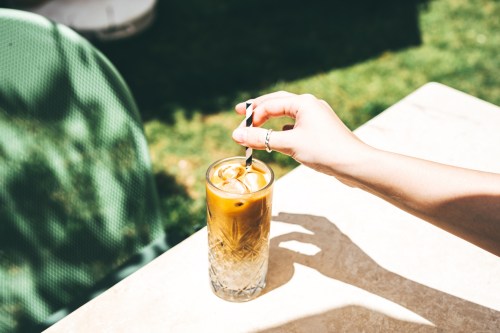Feeling a bit more on-edge or struggling to get a good night’s rest these days? If you’re looking for a “natural” option to help treat anxiety or sleep problems, you may have heard about valerian root, a plant that’s been used for centuries for its sedative effects.
Experts in This Article
board-certified psychiatrist and director of the Center for Green Psychiatry in West Lake Hills, Texas
Una McCann, MD, is director of the Anxiety Disorders Program at the Johns Hopkins School of Medicine.
While there is some limited evidence that valerian root may actually have some benefits for anxiety and sleep, experts say it’s essential to proceed with caution (and your doctor’s explicit okay) if you’re interested in giving valerian root a try. Here’s the lowdown about the plant, its potential for anxiety, and everything else to be aware of before trying it yourself.
How valerian root is used
Valerian is a flowering plant found around the world that has a notable sedative effect. It’s been used since the first century CE, initially mainly to relieve bloating and gas and to stimulate menstruation. It’s been used to treat anxiety and sleep problems.
Today, the herb is usually freeze-dried to make a powder that’s added to teas and supplements. Una McCann, MD, the director of the Anxiety Disorders Program at the Johns Hopkins School of Medicine, says she’s seen valerian root take off since the 1970s. “It’s been touted by naturalists and herbalists as a wonderful, natural way to help somebody sleep and to relieve anxiety,” she says. However, she cautions against the herb for her patients. “Many natural substances are quite psychoactively potent, cocaine and heroin being two of the obvious ones. There is sort of a sense that if something is natural it must be safe, but in fact, that’s not at all the case.”
Not all experts are as skeptical, though they do stress caution. “I don’t advise patients to avoid valerian altogether if overall they are healthy,” Gregory Scott Brown, MD, a board-certified psychiatrist and director of the Center for Green Psychiatry in West Lake Hills, TX. “Typically, patients will come to me having already tried natural products, like valerian, on their own and they are either looking for guidance about safety or if they aren’t benefiting from the product, they are wondering about what to do next.”
Research on valerian root for anxiety and sleep
To be clear, science isn’t exactly sure how valerian even works. Some research suggests that valerenic acid, the main active component in valerian root extracts, binds to gamma aminobutyric acid (GABA) receptors in the brain. It might also increase the amount of GABA in the brain, which is thought to reduce feelings of anxiety and stress. Prescription drugs like alprazolam (Xanax) and diazepam (Valium) also target GABA receptors.
Additionally, the research on valerian root is unconvincing at best, especially for anxiety. Most studies are small and poorly designed. Some studies find that valerian root improves sleep and anxiety symptoms, while other studies find it has little to no effect at all, further adding to the confusion. A 2020 meta-analysis that looked at 60 studies involving 6,894 people to try and determine why the research was inconclusive, although the drug had no severe side effects in adults. The researchers noted that the erratic findings could be due to the “variable quality of herbal extracts.” The authors noted that the plant could have more reliable effects on anxiety and sleep if the preparation and dosage of the root were more tightly controlled.
Most promising is a 2016 meta-analysis of 16 randomized, placebo-controlled studies of valerian root involving 1093 patients that concluded the herb “might” improve sleep quality without side effects. The authors noted that most studies had significant problems with their methodology, and that the doses of valerian and length of treatment varied significantly between studies.
“The general consensus is that valerian can be a useful treatment for some forms of anxiety and insomnia. It’s important to note, however, that research isn’t consistent and some studies suggest that it doesn’t work to a greater degree than placebo,” says Dr. Brown.
Potential side effects and issues to know
While research seems to suggest that valerian root is relatively safe when taken on its own, it may cause gastrointestinal symptoms such as nausea and abdominal cramps, says Dr. Brown.
The bigger problem is that the FDA doesn’t regulate supplements (like valerian root) in the same way it regulates pharmaceutical drugs—so there’s no guarantee about potency or toxicity. “There’s no good way to know exactly how much of the psychoactive substance is in that tea,” says Dr. McCann.
To reduce the risk that your supplement contains contaminants or doesn’t meet quality standards, Dr. Brown suggests looking for a verification seal from a third-party organization that conducts independent testing, such as NSF International, US Pharmacopeia (USP), or Consumer Lab.
It’s also a really bad idea to mix natural remedies like valerian root with prescription drugs like benzodiazepines, antidepressants, or sleep aids. “They can interact and cause awful toxic effects,” says Dr. McCann. “Don’t think you can use it just like you’re eating salad, because it is a psychoactive compound. It needs to be treated with great caution.” She adds that every individual responds differently to various substances, natural or prescribed.
Finally, if you’ve ever struggled with alcohol or drug dependence, valerian root is probably not a good option. “People may develop tolerance or dependence,” says Dr. McCann. She adds that valerian also hasn’t been studied for possible interactions with alcohol and should be used with caution if you even occasionally enjoy a glass of wine. (It also might not be safe for people who are pregnant.)
As with any medication or supplement, “I’d always recommend checking with your doctor first, since every person is different, and there may be a reason why it may not be right for you,” Dr. Brown says.
How much valerian is safe to take?
As mentioned, Dr. McCann typically recommends her patients avoid using valerian root to treat anxiety or insomnia, but Dr. Brown is open to it in certain cases. “I make sure there aren’t any known interactions between other medications or supplements they are taking,” Dr. Brown says.
Studied dosages tend to be 400 to 600 mg total of dry extract per day. However, specific dosage will vary depending on what your doctor recommends. “My philosophy is always to start low and go slow when finding the right medication dosage, so I wouldn’t recommend starting at the 600 mg dose right away,” says Dr. Brown. “The dose that’s been studied has varied widely, which is why it’s important to check in with your doctor about what’s right for you.”
Since complementary and alternative treatments like valerian are less studied than pharmaceutical treatments, Dr. Brown advises against taking it daily for extended periods of time to reduce the potential for tolerance or withdrawal.
Other options to treat anxiety and sleep problems
A safer bet to “naturally” treat anxiety and insomnia? Dr. McCann suggests seeing a licensed mental health-care provider for cognitive behavioral therapy, or CBT. This form of psychological therapy aims to help you recognize faulty or unconstructive thought patterns and behaviors and teaches problem-solving strategies to better cope with challenging situations. Meditation, mindfulness, and regular aerobic exercise can also be very helpful in treating anxiety and depression, Dr. McCann adds.
“If done properly, they can be very helpful and assisting a person get control over what they feel is lack of control over their situation and their own bodies, which tends to increase when we’re anxious and prevents us from sleeping well,” says Dr. McCann.
If you’re open to tested pharmacological treatments for anxiety-related issues, Dr. McCann says the first-line treatment are SSRIs. “There’s a handful of them, and not every one works for everyone. Some of us metabolize these things better than others, and some of us are more likely to have adverse effects because of our genotype than others,” says Dr. McCann. “It can be trial and error, even with an FDA-regulated drug like an SSRI.”
Sign Up for Our Daily Newsletter
Get all the latest in wellness, trends, food, fitness, beauty, and more delivered right to your inbox.
Got it, you've been added to our email list.
